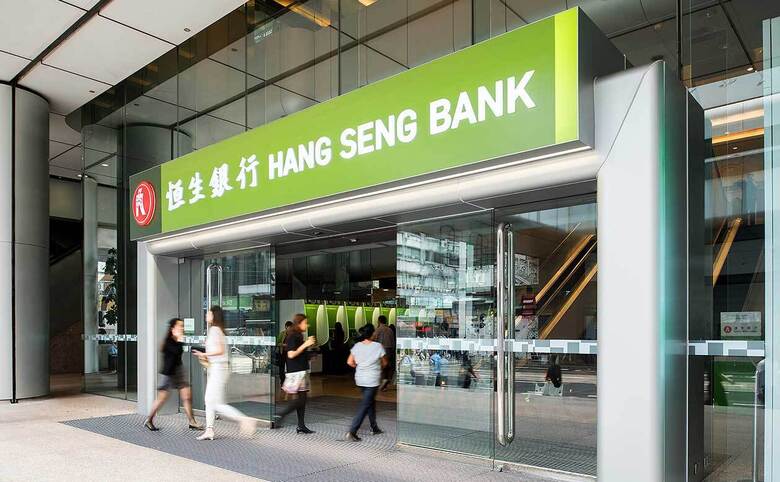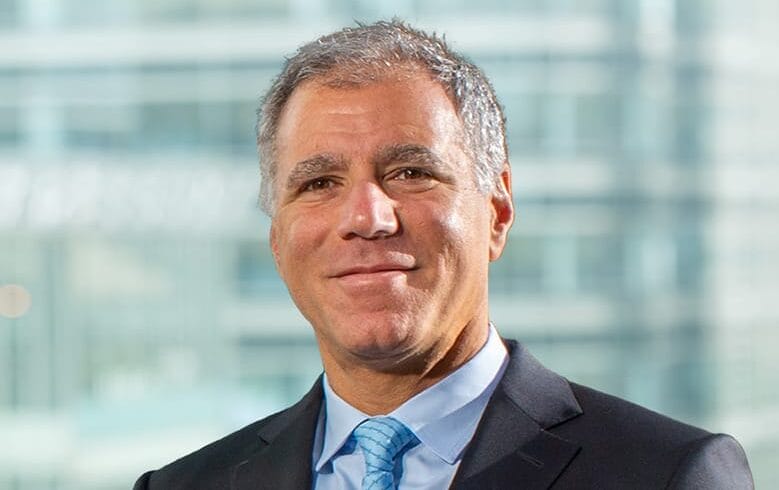
The deal remains subject to approval by Hang Seng shareholders (Image: Hang Seng Bank)
HSBC Holdings has offered to take private its Hang Seng Bank subsidiary in a deal valuing the Hong Kong-based unit at HK$290 billion ($37.3 billion) on an equity basis.
Under the plan, the London-headquartered, Asia-focused lender would pay HK$106 billion for the 37 percent of shares in Hang Seng it doesn’t already own, according to a Thursday statement. The offer price of HK$155 per share represents a 33 percent premium to the undisturbed 30-day average closing price of HK$116.50 per share, HSBC said.
For 92-year-old Hang Seng — which reportedly has been seeking a buyer for a $1 billion portfolio of property-backed bad loans — the proposed buyout comes with a commitment to preserve the bank’s brand, heritage and branch network while investing in new products, services and technology, said HSBC Group CEO Georges Elhedery.
“Our offer also represents a significant investment into Hong Kong’s economy, underscoring our confidence in this market and commitment to its future as a leading global financial centre, and as a super-connector between international markets and mainland China,” Elhedery said.
Trading Price Soars
The offer of HK$155 per share, which HSBC said is final and won’t increase, is more than Hang Seng’s highest trading price in the last three and a half years. The HKEX-listed stock shot up Thursday on the news, closing nearly 26 percent higher at HK$149.80 per share.

HSBC Group CEO Georges Elhedery (Image: HSBC)
The company’s implied equity valuation of HK$290 billion represents a price-to-book ratio of 1.8, a significantly higher multiple compared with Hang Seng’s Hong Kong peers, according to HSBC, which pitched the deal as a chance for minority shareholders to cash out immediately instead of waiting for future dividends.
The privatisation is also expected to boost HSBC’s strategy of increasing leadership and market share in areas where the group has competitive advantages, the finance giant said. HSBC’s biggest shareholder, Chinese insurer Ping An, has waged a multi-year campaign to pressure the group to explore restructuring options such as a spinoff of the group’s core Asian business.
Morningstar senior equity analyst Michael Makdad called the buyout “a positive and long-overdue move”, citing the governance problems inherent in parent-subsidiary double listings.
“Of course, HSBC will need to pay a premium so it likely wouldn’t be positive in terms of my fair-value estimate for HSBC but there should be some opportunities for cost synergies,” Makdad said.
In a separate statement, Hang Seng announced the appointment of an independent committee to consider the proposal, which remains subject to shareholder and court approval. HSBC plans to fund the share acquisition with its own financial resources.
Bad Real Estate Debt
Bloomberg reported late last month that HSBC had taken the “unusual step” of getting directly involved in pushing Hang Seng to offload a portfolio of bad real estate debt said to amount to at least $1 billion.
The global lender directed its London-based global chief corporate credit officer and the head of its special credit unit to ensure that Hang Seng started a sale process, according to the news agency, which cited people familiar with the matter.
Bloomberg had revealed earlier in September that Hang Seng was looking to sell the loan portfolio backed by assets from borrowers including Hong Kong developers Emperor International Holdings and Tai Hung Fai Enterprise.

Leave a Reply